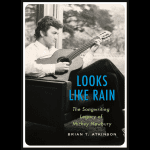Kris Kristofferson: Renegade Prophet
Through my work in radio, I’ve been blessed to have the unique opportunity to meet many celebrities and take in many concerts. I’ve interviewed musicians who have meant a great deal to me (Mike Ness of Social Distortion) and seen many memorable live music events (Tom Waits, Leonard Cohen, an amazing cover of Neil Young’s “Down by the River” by the Bottle Rockets with Eric Ambel).
However, I haven’t had the opportunity to cross paths with many folks I’d call “heroes”. The closest I’ve come is a brief exchange of letters with both the author Howard Zinn and folk singer/activist Pete Seeger.
The rest of my heroes passed either way before I could meet/see them (Crazy Horse, Martin Luther King) or shortly before I had the chance (Johnny Cash, Joe Strummer).
Tonight, though, I will be in the audience when one of my greatest earthly heroes takes the stage at the Fabulous Fox Theatre in St. Louis. Kris Kristofferson, who I unequivocally call a true prophet, will join my favorite country singer, Merle Haggard, in concert.
Kris Kristofferson was featured in Sports Illustrated as a high school rugby player. He was a Rhodes Scholar and attended the prestigious University of Oxford, where he began boxing. Kristofferson eventually became a Golden Gloves boxer. After college he joined the Army and, as a helicopter pilot, achieved the rank of Captain. After his honorable discharge, Kristofferson was offered a position as a professor of English Literature at West Point.
But he had other ideas.
Kris Kristofferson dreamed of being a songwriter and he left the promising military and academic futures before him to become a janitor at the studios of Columbia Records in Nashville. There, he witnessed recording sessions by Bob Dylan (but didn’t approach him out of fear of being fired) and eventually became friends with Johnny Cash.
Kristofferson began to build a name as a songwriter. Perhaps the most well known tale about this period centers on Kristofferson’s pitch to Johnny Cash to record Kristofferson’s song, “Sunday Morning Coming Down”. Cash had long put off recording any of Kristofferson’s material. Kristofferson eventually landed a helicopter on Cash’s property in Tennessee, walked to his house, and handed him the lyric sheet.
Cash finally recorded the song in a live setting on his television variety show, famously refusing to self-censor Kristofferson’s then-controversial line “Wishin’, Lord, that I was stoned…”
Eventually Kristofferson became one of the most well-known songwriters in country music and beyond. Cash had a huge hit with his “Sunday Morning Coming Down”, Ray Price hit big with “For the Good Times”, Sammi Smith had a smash with “Help Me Make It Through The Night”, and Janis Joplin turned “Me and Bobby McGee” into a modern-day standard.
Kristofferson began an acting career that continues today and he still records new music.
My admiration for Kris Kristofferson comes from many points of his story:
First, he knew what he wanted and he went after it. I would dare say that almost anyone would take issue with how Kristofferson passed up so many “prestigious” opportunities. He was a Rhodes Scholar. He was a high-ranking military official. He was a helicopter pilot. He was a Golden Gloves boxer and an athlete recognized for prowess in other sports, he was successful in a prestigious University, and he was offered a very respectable position at a top military academy. Any of us would be beyond fortunate to have any one of those opportunities, much less all of them at once.
But he wanted to be a songwriter. And he knew to do that he would have to make changes and sacrifices. As is always the case in the best motivational stories, no one, including Kristofferson’s family, believed he’d succeed. They couldn’t understand why he’d pass up so many “sure bets” at a good life for this crazy dream.
Eventually, his dream cost him his family. From their perspective, this is completely understandable. And I have trouble with this part of Kristofferson’s history, when viewed from his standpoint. However, somewhere within the shades of grey, I maintain that there is something admirable about knowing what’s in your heart and having the courage to fulfill what you know to be your purpose. It’s the hardest thing in the world to do what you know is right when you’re the only one who believes in it.
Second, when Kristofferson set out to achieve his dream, he did whatever was necessary to get there. He began working as a janitor at Columbia Studios in Nashville, simply so he could be near the music industry. I doubt you could find another Rhodes Scholar who emptied ashtrays for a living (at least AFTER receiving the scholarship).
And when doors began to open, Kristofferson maintained the relentless pursuit. He knew Johnny Cash needed to record “Sunday Morning Coming Down”. When Cash continually refused, Kristofferson devised a pitch that couldn’t be refused and landed a helicopter at Cash’s house. The song was a smash hit.
Third, when Kris Kristofferson made a name for himself, he made sure it was HIS name. There are any number of singers and songwriters who follow formula to write and record hit songs. Kristofferson brought hisstyle to country music.
At the time, the 1960s, country music was dominated by performers in nice suits and cowboy hats singing 2.5 to 3 minute songs about love, lost love, cheating, drinking, etc. Kristofferson showed up with songs that lasted 4.5 to 5 minutes – way too long for country standards. The country music industry is known for sticking to the tried and true, shunning anything new or different. But Kris proved them wrong.
His songs weren’t simply about love and cheating, either. They were about the painful emotions that occupy the space between those two topics. They were about longing and pain. They weren’t just about drinking. They were about why people drank. No one was writing songs like this in country music.
Dylan had already proven that these topics and this style – more poetry than standard songwriting – could be successfully integrated into pop and rock music. But country hadn’t dared touch them. Kristofferson single-handedly proved that there was a place for poetry in the hallowed halls of country music.
Through it all, Kristofferson has kept his head down and done what he needed to do. He’s never made a fuss over himself. He once said, “Acting is still fun. Talking about it still isn’t.” Beautiful. There’s not much worse than listening to self-important artists drone about their craft.
He’s held true to his beliefs, even when it wasn’t popular.
In the early 1990s, Sinead O’Connor shocked the world by destroying a picture of the Pope during a live performance on Saturday Night Live. The fallout was so huge NBC has forbidden the footage from ever airing again. She also made headlines for refusing, as a native of Ireland, to have the American National Anthem played before her concerts. After these controversies, O’Connor performed – or rather, attempted to – at a Bob Dylan birthday tribute concert. The audience was relentless in their attack. The boos and jeers made her performance impossible. Kristofferson was the first one onstage. He wrapped his arms around her and was heard over the sound system saying, “Don’t let the bastards get you down”.
I’ve never heard Kristofferson speak about his personal feelings about what O’Connor said and did. But I have heard him praise her for her bravery to say and do what she believed she should.
I have fewer earthly aspirations than to live a live as true and brave as Kris Kristofferson has lived his, for better or for worse.
This morning I woke up feeling especially low. I struggle with this on and off, but especially more so, as I’ve recently been dealing with the grown up problem of finding my place. A few years ago, I was active in leading a non-profit organization that everyone thought was destined for great things. Today, a few weeks after filing the final paperwork to dissolve that organization, I often struggle to get my legs back up under me. I wonder where my revolution is now.
As I headed in to my job…my “career”, (one of the many safe, grown up, mature, and responsible thing I completely disagree with by principle), I listened to my very favorite album of all time, Kris Kristofferson’s debut, simply called “Kristofferson”. One of the songs on the album is called, “To Beat the Devil”. It’s the story of a young singer who steps into a tavern to get out of the chilly wind. The devil himself is in that bar, disguised as a patron. The devil borrows the young man’s guitar and attempts to destroy his spirit with a simple song:
“If you waste your time a-talkin’ to the people who don’t listen
to the things that you are sayin’, who do you think’s gonna hear?
And if you should die explainin’ how the things that they complain about
are things they could be changin’, who do you think’s gonna care?
There were other lonely singers in a world turned deaf and blind
who were crucified for what they tried to show.
And their voices have been scattered by the swirling winds of time.
‘Cause the truth remains that no-one wants to know.”
The young man has heard the devil’s song before:
“You see, the devil haunts a hungry man.
If you don’t wanna join him, you got to beat him.
I ain’t sayin’ I beat the devil, but I drank his beer for nothing.
Then I stole his song.
And you still can hear me singin’ to the people who don’t listen
to the things that I am sayin’, prayin’ someone’s gonna hear.
And I guess I’ll die explaining how the things that they complain about
are things they could be changin’, hopin’ someone’s gonna care.
I was born a lonely singer, and I’m bound to die the same,
but I’ve got to feed the hunger in my soul.
And if I never have a nickel, I won’t ever die ashamed.
‘Cause I don’t believe that no-one wants to know.”
I went into work with my spirit lifted, feeling a little braver and a little more convinced that there is, in fact, a place for me, somewhere, and a way for me to fulfill my mission, whatever that is, in a way that only I can.
Thank God for prophets like Kris Kristofferson who can remind us of this elusive but essential fact.
-Ryan Mifflin
www.Facebook.com/DirtyRootsRadio
www.OtisRyanProductions.Blogspot.com




